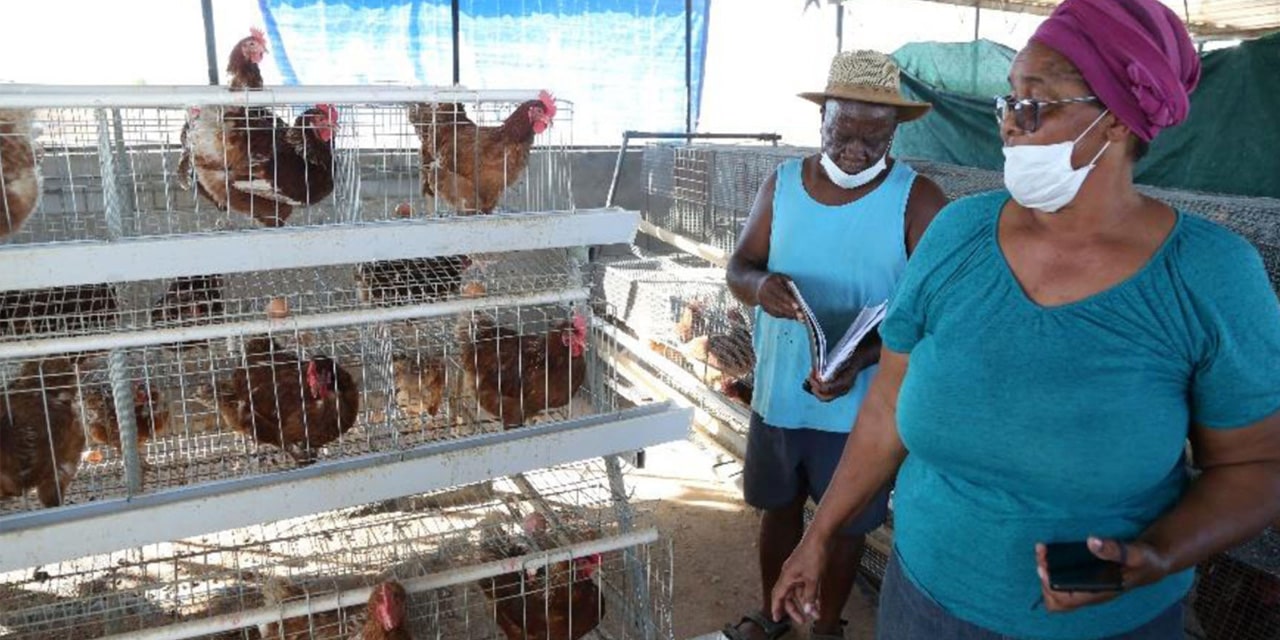Renathe Nasimas and Abraham Nasimab are a successful farming couple, who after years of relentless pursuance and balancing amid parenting, full-time jobs and weekend farming, are aspiring to be on top of their agribusiness today.
They currently farm with small livestock, poultry and are experimenting with horticulture. They are an embodiment of the phrase, “hard work does pay off”, constantly hunting for knowledge, adapting, reducing, renewing and expanding their business interests. From their humble beginnings as civil servants, Renathe was a nurse while Abraham a television technician in Windhoek.
Initially, Renathe, a liberation war veteran, wanted to retire early at the age of 45 to pursue fulltime farming but it was never to be. “We wouldn’t have made it financially because we had kids that go to school and we needed money for their necessities. At the same time, we were weekend farmers but it wasn’t easy at all,” Renathe recalls.
The journey started in the 1990’s as weekend farmers, when they successfully applied for a loan from Agribank to procure cattle in 2002. “We started at Groot Aub with 10 sheep, 20 goats and 40 layers. When the chickens increased to about 60 and the smallstock to about 80, we moved to Nevada near the Otjiwarongo area but there things did not go according to plan. So we moved again to the Khorixas area, where our cattle increased to about 100. Due to the drought situation we have since decreased our livestock numbers by about three quarters.”
Their primary agribusiness is poultry after receiving training from Agribank’s poultry experts, participating in an excursion to Shea Poultry Farm and attending several training workshops. The couple expanded into commercial poultry production in 2018, now owning about 300 layers (chickens reared only for laying eggs) that has increased egg production tremendously, and rearing marathon chickens sought after by local customers.
However, the addition of 500 broilers (chickens reared only for meat production) to the poultry business, was a drawback to their streaks of successes. The broilers were initially doing fine, increasing to about 800 at one point but decreasing to 200. The family counted their losses and settled to cancel the broiler production all together, ascribing the affair to the struggle to find suitable assistant poultry workers on the farm. Now the family is resuming the expansion of their entire poultry farming business. “We have designated an area on the farm to expand the layers and broilers as well as rearing local marathon chicken due to popular demand. Marathon chicken sells like hot cakes,” Renathe chuckles.
The couple left Windhoek in 2014 to settle in the Khorixas area, where they resumed commercial poultry. Their strategy was to pursue knowledge in farming, visiting other farmers, sharing skills and learning from others in a journey they described as an ‘agricultural education self-empowerment rendezvous’. “In farming you have to wake up daily despite health or social circumstances in order to manage your enterprise. We have witnessed how other farmers lost their livestock due to disease, drought or neglect, and we learned a great deal from that,” Abraham narrates.
Before Covid19 the family sold their poultry products to lodges and local communities, but due to lockdown most lodges closed down since there are no tourists travelling. The only customers they are left with are local community members to whom they sell mainly eggs and marathon chickens. They sell mostly eggs in comparison to meat as the economic depression has forced many to settle for eggs as an alternative protein.
Even though the couple had reached a certain degree of success and self-sufficiency, Renathe insists that they haven’t done enough yet. “Agriculture education is never enough; it’s a lifelong learning process. It was always my wish to expand our agribusiness. I’m confident we’ll get there. Most importantly, we envisaged a garden. We started with a small experimental garden and now we want to expand to fruit orchards and vegetable gardens since we have enough water.”
The biggest problem farmers in the Khorixas areas face is the conflict for habitat with elephants. “So far the business is not affected by the pandemic. We can’t complain. I just finished packing our pickup to the brim with eggs to take to the market. So business is good,” Abraham concludes.




